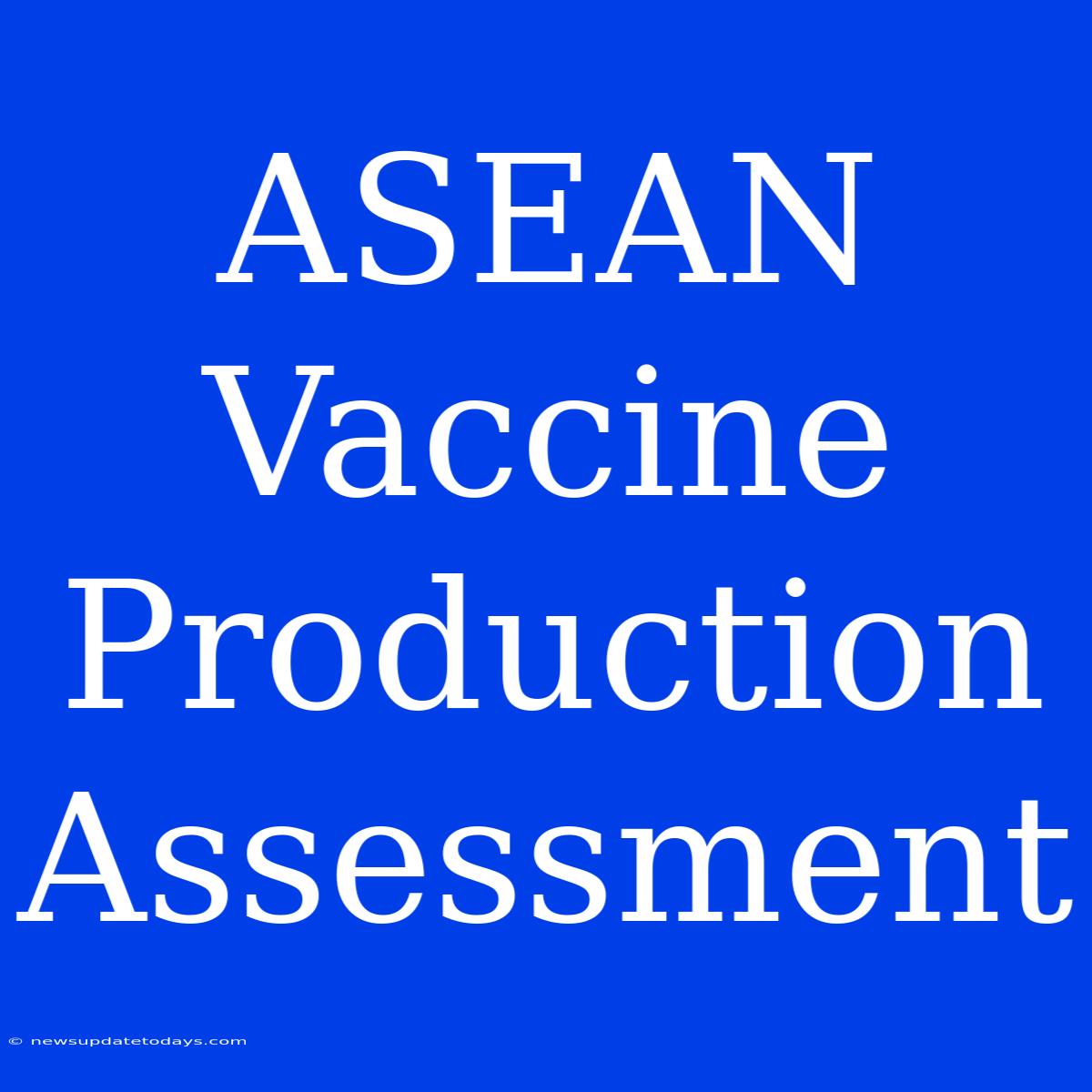Asean Vaccine Production: An Assessment of Current Capabilities and Future Prospects
The COVID-19 pandemic starkly revealed the fragility of global vaccine supply chains. Southeast Asia, while home to a significant population, faced significant challenges accessing sufficient vaccines. This highlighted the urgent need for increased vaccine production capacity within the ASEAN region. This article assesses the current state of ASEAN vaccine production, identifies key challenges, and explores potential avenues for future development.
Current State of ASEAN Vaccine Production:
ASEAN member states possess varying levels of vaccine production capabilities. While some countries have established manufacturing facilities, often through partnerships with international pharmaceutical companies, others heavily rely on imports. Current production largely focuses on filling and packaging of imported bulk vaccine substances, rather than complete end-to-end manufacturing. This reliance on imports exposes the region to global supply chain vulnerabilities.
<h3>Challenges Hindering ASEAN Vaccine Production:</h3>
Several key obstacles impede the growth of a robust ASEAN vaccine industry:
-
Limited Technological Capacity: Developing the complex technological capabilities required for vaccine production, including upstream processes like antigen production, requires significant investment in research and development, specialized infrastructure, and skilled personnel.
-
Regulatory Hurdles: Harmonizing regulatory frameworks across ASEAN member states is crucial to streamline the approval and licensing process for new vaccines. Inconsistent regulations can create delays and increase costs.
-
Funding Constraints: Investing in vaccine production requires substantial financial resources. Securing sufficient funding through public and private investment is crucial for scaling up manufacturing capabilities.
-
Lack of Skilled Workforce: A skilled workforce is essential for operating complex vaccine manufacturing facilities. Investing in education and training programs is needed to build the necessary expertise.
-
Intellectual Property Rights: Navigating intellectual property rights related to vaccine technologies can be complex. Collaborations and technology transfer agreements are critical for sharing knowledge and accelerating production.
Future Prospects and Recommendations:
Building a resilient ASEAN vaccine industry requires a multi-faceted approach:
-
Strengthening Regional Collaboration: ASEAN member states should foster stronger collaboration in research and development, technology transfer, and regulatory harmonization. Joint ventures and public-private partnerships can facilitate knowledge sharing and resource pooling.
-
Investing in Research and Development: Increased investment in R&D is critical for developing indigenous vaccine technologies and adapting vaccines to regional needs. This includes supporting local research institutions and fostering collaborations with international partners.
-
Developing Manufacturing Capacity: ASEAN needs to develop end-to-end vaccine manufacturing capabilities, moving beyond filling and packaging to encompass upstream processes. This will require significant investment in infrastructure and technology.
-
Building Human Capital: Investing in education and training programs to cultivate a skilled workforce is paramount. This includes developing expertise in vaccine manufacturing, quality control, and regulatory affairs.
-
Securing Funding: A mix of public and private funding is needed to support vaccine production development. International organizations and development partners can play a crucial role in providing financial and technical assistance.
Conclusion:
The development of a robust ASEAN vaccine production capacity is crucial for ensuring the region's health security. Overcoming the challenges outlined above requires concerted effort from ASEAN member states, international organizations, and the private sector. By strengthening regional collaboration, investing in R&D and manufacturing, and building human capital, ASEAN can establish a self-reliant vaccine industry capable of protecting its population from future health threats. The journey will be challenging, but the rewards – greater regional health security and economic independence – are significant.

